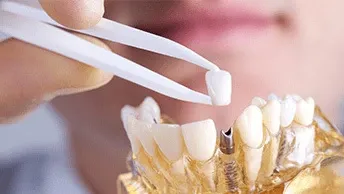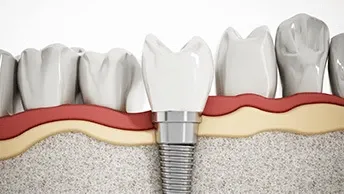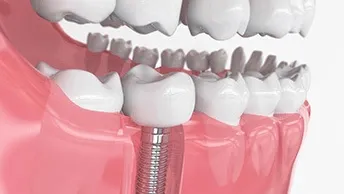Both dentures and dental implants offer solutions for missing teeth, but they differ significantly in terms of:
Appearance and Feel:
Dentures: Rest on top of the gums and can feel bulky and unnatural. Speaking and eating can be challenging, and they may slip or cause irritation.
Implants: Mimic natural teeth with a metal anchor surgically placed in the jawbone and topped with a crown. They feel and function more like natural teeth, providing improved comfort and confidence.
Durability and Maintenance:
Dentures: Require regular cleaning and soaking, and need to be replaced every 5-10 years due to wear and tear.
Implants: Last much longer, potentially a lifetime with proper care, and require minimal maintenance beyond regular brushing and flossing.
Cost:
Dentures: Generally cheaper upfront, with costs ranging from $300 to $5,000 per plate.
Implants: Significantly more expensive than dentures, with individual implants costing $1,500 to $6,000 per tooth. However, their long lifespan and minimal maintenance can make them cost-effective in the long run.
Procedure and Risks:
Dentures: Relatively simple and non-invasive, suitable for individuals who may not be eligible for surgery.
Implants: Require surgery to place the anchors, which carries potential risks like infection or nerve damage. Not suitable for everyone, especially those with certain health conditions.
Overall:
Dentures: A more affordable and quick option with limitations in appearance, comfort, and long-term durability.
Implants: A pricier and invasive option, but offer superior aesthetics, functionality, and longevity.
Choosing the right option depends on your individual needs and priorities:
Budget: If cost is a primary concern, dentures might be a better choice.
Health: Implants are not suitable for everyone, so consult your dentist to assess your eligibility.
Lifestyle: Implants offer greater freedom and confidence for eating, speaking, and social activities.



